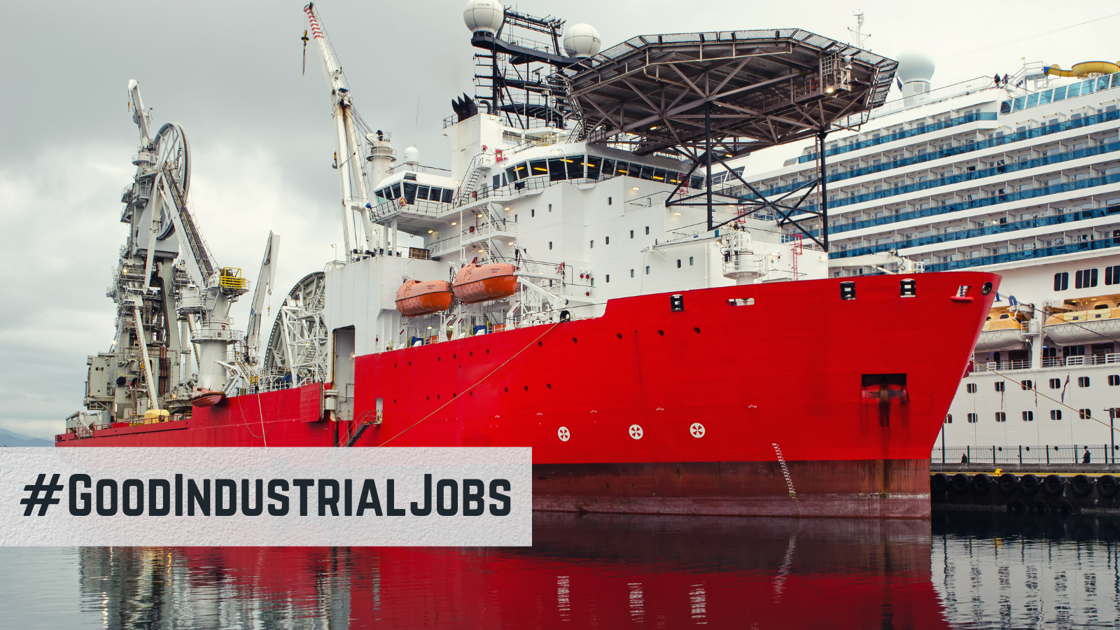Europe’s shipbuilding sector is a vital engine of economic and industrial strength, with 300 shipyards, 22,000 equipment and service suppliers, and over 1 million direct and indirect jobs. Yet, despite its strategic importance, the sector faces intensifying challenges from fierce Asian competition, geopolitical tensions, and a lack of sector-specific support from the EU, which have led to a steady erosion of Europe’s shipbuilding capacity. Over 60% of global shipbuilding orders now go to China, while EU shipbuilding aid was abolished in 2003, leaving European shipyards at a competitive disadvantage.
IndustriAll Europe argues that the EU must urgently develop and implement a new maritime industrial strategy that levels the global playing field and actively supports the sector’s competitiveness, sustainability, and social foundations.
“The European shipbuilding sector is at a critical juncture. Without targeted action, Europe risks losing a key component of its industrial base and its maritime strategic autonomy”, Isabelle Barthès, industriAll Europe Deputy General Secretary, said.
Key demands include:
• Recognition of shipbuilding as a strategic sector in EU industrial policy
• A Sustainable Transport Investment Plan with dedicated funds for net-zero vessels, retrofitting, and green infrastructure
• Strong social conditionalities attached to public investment, inspired by the US Inflation Reduction Act, to guarantee quality jobs and respect for workers’ rights
IndustriAll Europe’s position paper highlights the deep social challenges facing the industry, including unsafe subcontracting practices, an overreliance on posted and migrant workers - many of whom face wage undercutting and exploitation - that undermines fair competition and worker protections.
IndustriAll Europe demands:
• Full enforcement of the Posting of Workers Directive and stricter due diligence for subcontractors
• EU-wide training and upskilling programmes, particularly for older workers and those affected by green and digital transitions
“Every euro of public investment must benefit the workers and not be directed into practices that weaken labour protections or fuel social dumping. This is why we are calling for strong social conditionalities attached to any public funding”, Isabelle Barthès added.
The shipbuilding industry is uniquely positioned to lead in clean maritime technologies, including the construction of offshore wind installation vessels and low-carbon ships. Yet the transition risks being stalled by a critical skills shortage, outdated infrastructure, and fragmented investment across EU regions.
To meet this challenge, industriAll Europe urges:
• Binding EU conditionalities linking public funding to skills development and job quality
• Tailored financial incentives to close the 30–40% cost gap with Asian competitors
• Strategic investment in port infrastructure and supply chains for critical energy components
At a time when Europe is rethinking its defence, industrial sovereignty, and climate commitments, the maritime sector must not be left behind.
“Europe must steer its maritime future with ambition, justice, and unity. Without investment in workers, skills, and fair competition, the EU risks losing not only industrial capacity but also social cohesion and strategic independence. The time for action is now”, Isabelle Barthès concluded.
Read industriAll Europe’s position paper on the EU Maritime Industrial Strategy: EN FR DE
